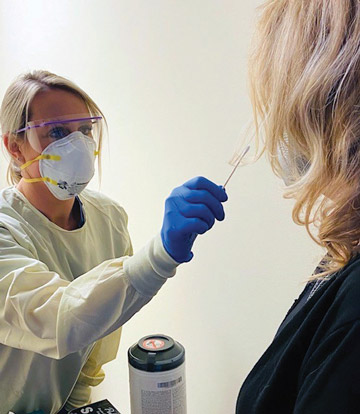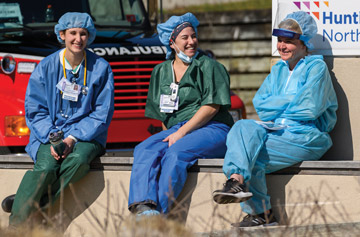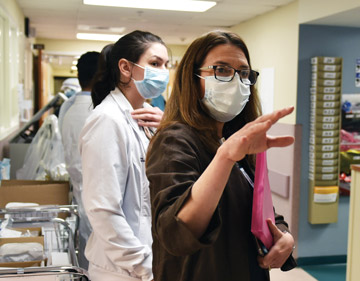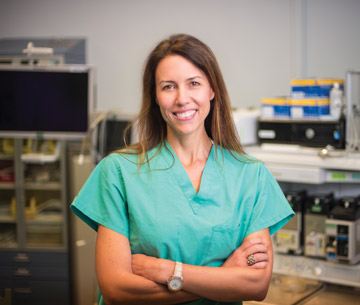The staff at Proliance Eastside Surgery Center in Kirkland, Wash., must feel like grizzled veterans when it comes to working during a pandemic. In late February, a nearby long-term skilled nursing facility saw its first resident with COVID-19.
Within weeks, 81 residents of the facility, 34 of its staff members and 14 visitors contracted COVID. Twenty-three of them died.
That put Proliance Eastside squarely in one of the original hot spots for COVID-19 in the United States. With multiple deaths in the same county, the center's staff had to pivot and instantly change the way they operated. They began by screening
patients for symptoms of the virus in the building's foyer. More attention was paid to surface cleaning during room turnovers. When PPE vendors called during the weeks that followed, their typical sales pitches to buy more supplies than the
center needed were replaced with alerts of a rationing system that meant the center would be getting a smaller percentage of masks, gowns and gloves — items it desperately needed.
With the community in crisis because of the nearly two dozen deaths at a nearby nursing home, some Proliance Eastside employees weren't able to work full-time because they had children whose schools had closed or older parents who needed care.
As would soon be the case at outpatient facilities nationwide, Proliance Eastside limited its caseload to emergent procedures.
Fast forward to November — a full nine months after the first wave of the pandemic — and the changes caused by the coronavirus seem anything but novel. "We're still in the middle of it, and another wave is coming our way," says Director
Carmen Wilson, RN, BSN, CIC. "The CDC and the state department of health tell us what the latest practices should be. We add them to our workflow, and two days later we receive another update with new tasks to implement and report to regulators."
Proliance Eastside evolved its symptoms screenings method in the foyer into a "mini COVID clinic," at which a medical assistant or registered nurse swabs patients and sends the swabs to labs for testing. However, while the center has managed to
acquire a rapid testing device, they've yet to secure the cartridges that are supposed to accompany it. "The changes are happening quickly, but being able to implement them quickly has been challenging," says Ms. Wilson.
On March 16, the multi-specialty ASC reduced its caseload to about five cases a day performed in a single OR. When the governor allowed more elective surgeries to resume about two months later, the incremental ramp-up to a full workload began,
which brought new challenges. A screener position had to be created and staffed to test patients and staff members at the door. The mini COVID clinic required new processes and staff as well.
"We're back to being fully functional, but challenges remain that add up," says Ms. Wilson. "ASCs are small, so social distancing requirements are difficult. We've fit-tested our employees for masks, but the N95s we can get aren't always the ones
that fit best. We have on-site kits to test how masks fit on the fly if we need to."
Now, despite ICUs filling up again around Proliance Eastside, Ms. Wilson is planning on keeping the facility operating at full capacity by continuing to make on-the-fly adjustments to how her team operates.
"Previously, we would wait to get all the information needed to make an informed decision," she says. "Now, there's no time for that. A decision we made yesterday and put into place today could be changing tomorrow." Ms. Wilson says that being
forced to make too many changes too quickly has taught her the importance of keeping her staff informed at every step. "We need to make sure that what we're doing is correct," says Ms. Wilson. "Right now, in a pandemic, we have no choice but
to make changes quickly to meet immediate needs. Once things go back to normal, we're definitely going to take a step back and reevaluate the decision-making process moving forward."
.svg?sfvrsn=be606e78_3)





.svg?sfvrsn=56b2f850_5)